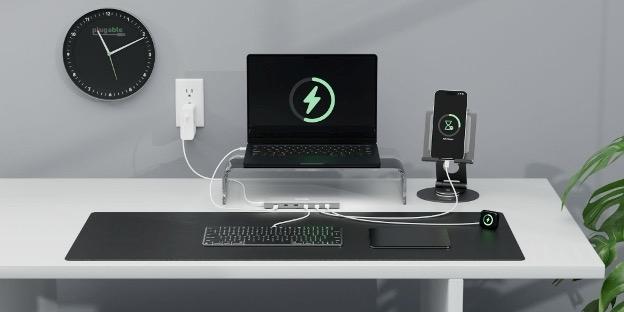AI tools like ChatGPT, Claude and Gemini are transforming the job search process, helping candidates … More
Applying for jobs can be a tiring, repetitive and mentally exhausting process. Firing off hundreds of identical applications and CVs is unlikely to land you that dream role, so every application needs a thoughtful approach. Fortunately, this is an area where generative AI shines.
With the right prompts and oversight, ChatGPT, Gemini, Claude or any of today’s powerful language-based assistants can transform into your personal career coach or resume-writing assistant.
The trick here isn’t to get AI to apply for jobs for you, but to get it to handle the routine, repetitive and frankly boring parts of the process. This frees you up to think creatively about the important parts.
Tips For Successful AI-Assisted Job Hunting
So here are my top tips for leveraging generative AI to streamline your job search, as well as some of my favorite prompts to get you started.
Don’t Let AI Write Your Application
One of the most popular job-hunting uses for ChatGPT and similar chatbots is writing cover letters. But this isn’t a smart move. Recruiters are being swamped by AI-generated CVs and cover letters, which are often easily spotted due to sounding “robotic”, and they immediately scream low-effort. In fact, AI developer Anthropic has itself gone as far as banning generated applications. Instead, use AI to help you brainstorm ideas, gain insights and eliminate repetitive work like matching skills and experience to job requirements.
Analyze Job Descriptions
A job description is usually the best source of information on what a company is looking for. Use AI to analyze it and find keywords to focus on in your CV and cover letter. It can help you match your skills and experiences to the job’s requirements, and suggest ways to highlight them as relevant to hiring managers.
Upload Your CV, Often
Continuously update ChatGPT’s understanding of your job search by uploading each iteration of your CV. This lets it learn how to differentiate between types of jobs you’re applying for, and how the information on your CV should be edited or re-framed accordingly. Then you can have it automatically create templates for different roles, levels of seniority or industries your search might include.
Spot What May Have Been Overlooked
While it’s not a great idea to get AI to write your CV or cover letter, it can be very good for fine-tuning and streamlining what you’ve written. Asking it to critically assess your application to spot opportunities to shine that you may have missed, or trim fat that’s not going to help you get noticed, is always a good idea.
Proofread and Double-Check Everything
AI sometimes hallucinates and makes things up. While this is often harmless, that probably isn’t the case if it results in errors or nonsense in your job application. With AI, you can potentially turn one comprehensive CV into personalized approaches to many different companies, but make sure every single one is checked over with a human eye before it’s sent out!
Useful Prompts For Landing Dream Jobs
Identify Transferable Skills
This prompt is designed to help you think about how skills and experiences might meet a role’s requirements.
Prompt: “I am applying for [job title] positions. Please analyze my CV and suggest ways that I can frame my skills and previous experience in ways that highlight their relevance to the job I’m seeking.
Analyze A Job Description
Helps you quickly work out what an employer really thinks is important for the role, so you don’t have to waste time guessing.
Prompt: “Please analyze this job description. Provide a summary of the top skills, qualities or experiences the role requires, and suggest the most important keywords for me to include in my CV and cover letter.”
Tailor A CV For An Application
By analyzing the description together with your CV, AI can help structure your application so it ticks all the right boxes.
Please help me tailor my CV for this role. Structure the information in it in whatever way best highlights my suitability for the role. Be sure to highlight how my skills and experience match all of the requirements listed in the job description. Disregard mentioning any skills or experiences that can’t be framed as relevant.
Simulate A Job Interview
Ever notice how a lot of interviewers ask similar questions? AI has, and is pretty good at guessing what type of questions will come up in yours.
Prompt: Please play the role of an experienced, professional interviewer at [company name], and interview me for the role of [job title]. Please use the information in the job description and my CV to ask me questions, one at a time, and try to determine my suitability for the role. When you have finished, give feedback on my performance and suggestions for improvements I can make for the real interview.
So, hopefully, you’ve realized that while AI can’t guarantee you your dream role, it can help with much of the heavy lifting. If the prompts here don’t quite suit your flow, it should be simple enough to use them as building blocks for creating ones that do. Just remember to let your human qualities shine through, because often this will be what employers are really looking for.









